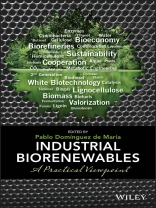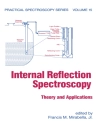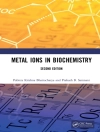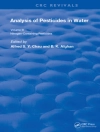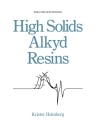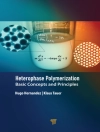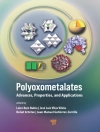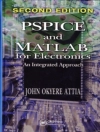INDUSTRIAL BIORENEWABLES
A Practical Viewpoint
This unique text provides an in-depth industrial view in its discussion of industrial biorenewables; industries report on real cases of biorenewables, dealing with economics, the motivation of implementing industrial biorenewable-based processes, and suggestions for further improvement and research.
- Includes industrial perspectives by scientists working on biorenewable technology in industry, with a clear commercial focus
- Spans basic research to commercialization of processes and everything in between
- Provides key information for academic groups working in the area by covering the way industrial scientists tackle problems
- Showcases patented technologies across diverse industries, shares the motivation of implementing industrial biorenewable-based processes, and suggests options for further improvement and research
- Serves as a guide for industries and academic groups, providing crucial information for the setup of future biobased industrial concepts
Industrial Biorenewables provides a state-of-the-art perspective, offering a unique viewpoint from which a range of industries report on real cases of biorenewables, demonstrate their technologies, share the motivation of implementing a certain industrial biorenewable-based processes, and suggest options for further improvement and research. With an in-depth industrial viewpoint, the book serves as a key guide for industries and academic groups, providing crucial information for the setup of future biobased industrial concepts.
Innehållsförteckning
List of Contributors xiii
Preface ix
1 Akzo Nobel: Biobased Raw Materials 1
Alistair Reid, Martijn van Loon, Sara Tollin, and Peter Nieuwenhuizen
1.1 Akzo Nobel’s Biobased Raw Materials Strategy in Context 1
1.2 Akzo Nobel in the Value Chain 3
1.3 Drivers Behind Development of the Biobased Raw Material Strategy 4
1.4 Conclusions of the Biobased Chemicals Strategy 10
1.5 Implementing the Strategy: Striking Partnerships 13
1.6 Experience to Date 14
1.7 Measuring, Reporting, and Ensuring Sustainable Sourcing of Biomass 17
1.8 Book and Claim 18
1.9 Sustainability in the Value Chain: LCA 19
2 Arizona Chemical: Refining and Upgrading of Bio-Based and Renewable Feedstocks 21
Godfried J. H. Buisman and Jos H. M. Lange
2.1 Company Introduction 22
2.2 History of Pine Chemicals 22
2.3 Modern Biorefining 28
2.4 The Kraft Pulping Process 34
2.5 Cradle-To-Gate 44
2.6 Outlook 46
2.7 Case Study: Tackifiers From Renewable Pine-Based Crude Tall Oil and Crude Sulfate Turpentine for Adhesive Applications 49
Acknowledgments 57
References 57
3 Arkema: Castor Reactive Seed Crushing Process to Promote Castor Cultivation 63
Jean-Luc Dubois
3.1 Arkema: Context for Biorenewables 64
3.2 Introduction to Castor Oil 65
3.3 Experimental Details 72
3.4 Results 77
3.5 Discussion 85
3.6 Conclusion 92
Acknowledgments 93
References 94
4 Avantium Chemicals: The High Potential for the levulinic product tree 97
Jan C. van der Waal and Ed de Jong
4.1 Introduction 97
4.2 Levulinic Production Routes 101
4.3 The Levulinic Acid Product Family Tree 107
4.4 Conclusions and Outlook 116
References 117
5 C5LT: Biorenewables at C5 Ligno Technologies AB 121
Kaisa Karhumaa and Violeta Sànchez i Nogué
5.1 Introduction 121
5.2 Lignocellulosic Ethanol Production: Process 123
5.3 C5LT Gene Package Technology 129
5.4 Fermentation of Lignocellulosic Hydrolysates: Remaining Challenges 136
5.5 Conclusions 137
Acknowledgments 138
References 138
6 Cepsa: Towards The Integration of Vegetable Oils and Lignocellulosic Biomass into Conventional Petroleum Refinery Processing Units 141
Maria Fé Elía, Olalla de la Torre, Rafael Larraz, and Juana Frontela
6.1 About Cepsa 142
6.2 Vegetable Oils 149
6.3 Lignocellulosic Biomass 167
6.4 Concluding Remarks 172
References 173
7 Du Pont: Biorenewables at E.I. DU Pont DE Nemours & Co 175
Michael A. Saltzberg, Armando M. Byrne, Ethel N. Jackson, Edward S. Miller Jr., Mark J. Nelson, Bjorn D. Tyreus, and Quinn Zhu
7.1 Du Pont History and Strategic Priorities 176
7.2 Du Pont’s Innovation Philosophy 178
7.3 Du Pont’s Industrial Biorenewable Portfolio 2013 180
7.4 Case History #1: Bio-PDO and Sorona 182
7.5 Case History #2: Development of Yeast-based Omega-3s for Verlasso Harmoniously Raised Salmon 194
7.6 Future Directions for Dupont in Industrial Biorenewables 210
7.7 Summary 213
References 213
8 Evonik: Bioeconomy and Biobased Products 219
Henrike Gebhardt, Peter Nagler, Stefan Buchholz, Stefan Cornelissen, Edda Schulze, and Achim Marx
8.1 Introduction 220
8.2 Biobased and Bioprocessed Products (1) 225
8.3 Products Produced from Biobased Feedstock by Conventional Catalysis (2) 234
8.4 Biodegradable Products (3) 239
8.5 Enabling Chemicals (4) 239
References 241
9 Market Structure and Growth Rates of Industrial Biorenewables 245
Gunter Festel
9.1 Background for Industrial Biorenewables and Data Sources 245
9.2 Market Overview and Growth Rates 247
9.3 Examples for Biotechnology-Based Products Related to Biorenewables 252
References 254
10 Göteborg Energi: Vehicle Fuel From Organic Waste 255
Eric Zinn and Henrik Thunman
10.1 The Company 256
10.2 Sweden’s Renewable Energy Targets and the Role that Biogas Will Play in Meeting these 256
10.3 Biogas in Transportation: Case Studies Within Göteborg Energi 257
10.4 The Role of Gasification Technology in the Future as the Demand for Biomass-based Energy and Fuel Grows 264
11 Greasoline: Biofuels From Non-food Materials and Residues 267
Georg Dahmen, Peter Haug, Gunter Festel, Axel Kraft, Volker Heil, Andreas Menne, and Christoph Unger
11.1 Fuels and Chemicals: Necessity of Renewables 268
11.2 Evolving Markets for Greasoline® Technology 269
11.3 Technology Overview Greasoline® 270
11.4 Description of Business Model 271
11.5 Diesel from Different Raw Materials 274
References 280
12 Green Applied Solutions: Customized Waste Valorization Solutions for a Sustainable Future 283
Chunping Xu and Rafael Luque
12.1 Introduction 283
12.2 The Company 285
12.3 Projects and Future 287
12.4 Conclusions and Prospects 292
Acknowledgments 293
References 293
13 Grove Advanced Chemicals: Flox® Coagulants – Environmentally Friendly Water and Wastewater Treatment Using Biodegradable Polymers From Renewable Forests 295
Bárbara van Asch, Paulo Martins, Filipe Santos, Elisabete Sepúlveda, Pedro Carvalho, Richard Solal, Carlos Abreu, Rui Santos, Jorge Vasconcelos, Philippe Geyr, and Henrique Villas-Boas
13.1 Introduction 296
13.2 Company Overview 297
13.3 Coagulation and Flocculation in Water Treatment 298
13.4 Flox® Coagulants 298
13.5 Company and Product Certifications 302
13.6 Case Studies 303
13.7 Future Perspectives 320
References 321
14 Heliae Development, LLC: An Industrial Approach to Mixotrophy in Microalgae 323
Eneko Ganuza, Anna Lee Tonkovich, and Bárbara van Asch
14.1 Preamble 323
14.2 Introduction to Heliae Development LLC 324
14.3 Mixotrophy 325
14.4 Implementation of Industrial Mixotrophy: A Case Study 332
Acknowledgments 339
References 339
15 In Fi Qu S: Making the Best of Leftovers 341
Inmaculada Aranaz, Niuris Acosta, María N Mengíbar, Laura Calderón, Ruth Harris, and Ángeles Heras
15.1 Brief Description of In Fi Qu S 342
15.2 Valuable by-products Under Research by In Fi Qu S 345
15.3 Examples of Products Co-developed by In Fi Qu S 360
15.4 Market Situation 362
15.5 Needs of Research: Synergies Between Industry and Academia 364
References 366
16 Biorenewables at Mango Materials 371
Allison Pieja, Anne Schauer-Gimenez, Ann Oakenfull, and Molly Morse
16.1 Motivation: the Problems with Plastics Today 372
16.2 The Bioplastics Industry: An Overview 373
16.3 Mango Materials – a Novel PHA Production Process 377
16.4 Mango Materials, the Story 386
16.5 The Future – new Ideas for Potential Research 390
Acknowledgments 391
References 391
17 Novamont: Perspectives on Industrial Biorenewables and Public-Private Needs 397
Stefano Facco
17.1 State of the Art and Challenges Faced by Biobased Industries 397
17.2 Wisdom in the Use of Renewable Raw Materials: The Cascading Use of Biomass 400
17.3 Case Study: Bioplastics in Italy: Going For Growth Despite the Crisis 401
17.4 The EU Policy Framework and Related Policy Gaps: The EU Strategy on Bioeconomy and the Role of Industrial Policies 405
References 407
18 Novozymes: How Novozymes Thinks About Biomass 409
Brandon Emme and Alex Berlin
18.1 The Company 411
18.2 Case Study: The Transformation of Cellulose to Ethanol 412
References 434
19 Organoclick: Applied Eco-Friendly and Metal-Free Catalysis for Wood and Fiber Modifications 437
Jonas Hafrén and Armando Córdova
19.1 Introduction 437
19.2 Eco-friendly and Organocatalytic Surface Modification of Lignocellulose 440
19.3 Organocatalytic Cross-linking Between Polysaccharides 443
19.4 OC Modification of Lignocellulose 444
References 449
20 Petrobras: The Concept of Integrated Biorefineries Applied to the Oleochemistry Industry: Rational Utilization of Products and Residues via Catalytic Routes 451
Eduardo Falabella Sousa-Aguiar, João Monnerat Araujo Ribeiro de Almeida, Pedro Nothaft Romano, and Yuri Carvalho
20.1 Introduction 452
20.2 Glycerol Fermentation 454
20.3 Hydrotreating 458
20.4 Decarboxylation 460
20.5 Conclusions 464
References 464
21 Phytonix: Cyanobacteria for Biobased Production Using CO2 467
Bruce Dannenberg, Peter Lindblad, and Gary Anderson
21.1 Background: The Coming CO2 Economy and Circular Economy Principles 468
21.2 Technology for Cyanobacteria and Direct Photobiological Production 468
21.3 Phytonix: Path Toward Full Commercialization of the Technology 475
21.4 n-Butanol: A Valuable Industrial Chemical and Potential ’Drop-in’ Gasoline Replacement 482
References 489
22 Phytowelt Green Technologies: Fermentation Processes and Plant Breeding as Modules for Enhanced Biorefinery Systems 491
Peter Welters, Guido Jach, Katrin Schullehner, Nadia Evremova, and Renate Luehrs
22.1 Introduction 492
22.2 The Next Step: Beyond Energy Production 492
22.3 Material Uses of Renewable Poplar Biomass 494
22.4 Fermentative Production of High-value Compounds 495
22.5 Cooperations with Chemical Industry 499
22.6 Toward Optimized Biorenewables: Time-Lapse and Smart Breeding 502
22.7 Next-Generation Poplars/Plants 505
22.8 Toward Novel Biorefineries: Networking for Success 505
References 506
23 Biorenewables at Shell: Biofuels 507
Jean-Paul Lange, Johan Willem Gosselink, Rob Lee, Evert van der Heide, Colin John Schaverien, and Joseph B. Powell
23.1 Introduction 509
23.2 Shell and Biofuels 510
23.3 Development of Advanced Biofuels in Shell 511
23.4 Challenges Leading to More Research 535
23.5 Conclusions 538
References 539
Index 545
Om författaren
Pablo Domínguez de María holds BSc degree in Pharmacy and Chemistry and a Ph D in Biocatalysis (2002). He worked in industries for 6.5 years (20032009, 2 years at Evonik AG, Germany, and 4.5 years at Akzo Nobel BV, the Netherlands) being involved in projects regarding sustainable chemistry, organocatalysis, neoteric solvents, and white biotechnology. In 2009, he joined RWTH Aachen University as Group Leader. In 2015, he successfully defended his Habilitation (Thesis: Bio-based catalysis for petroleum-free biorefineries and fine chemicals). Since 2014 he is the Founder and CEO of Sustainable Momentum, SL., a consultancy firm providing technical support, advisory, project supervision, and competitive intelligence reporting on Sustainable Chemistry.
